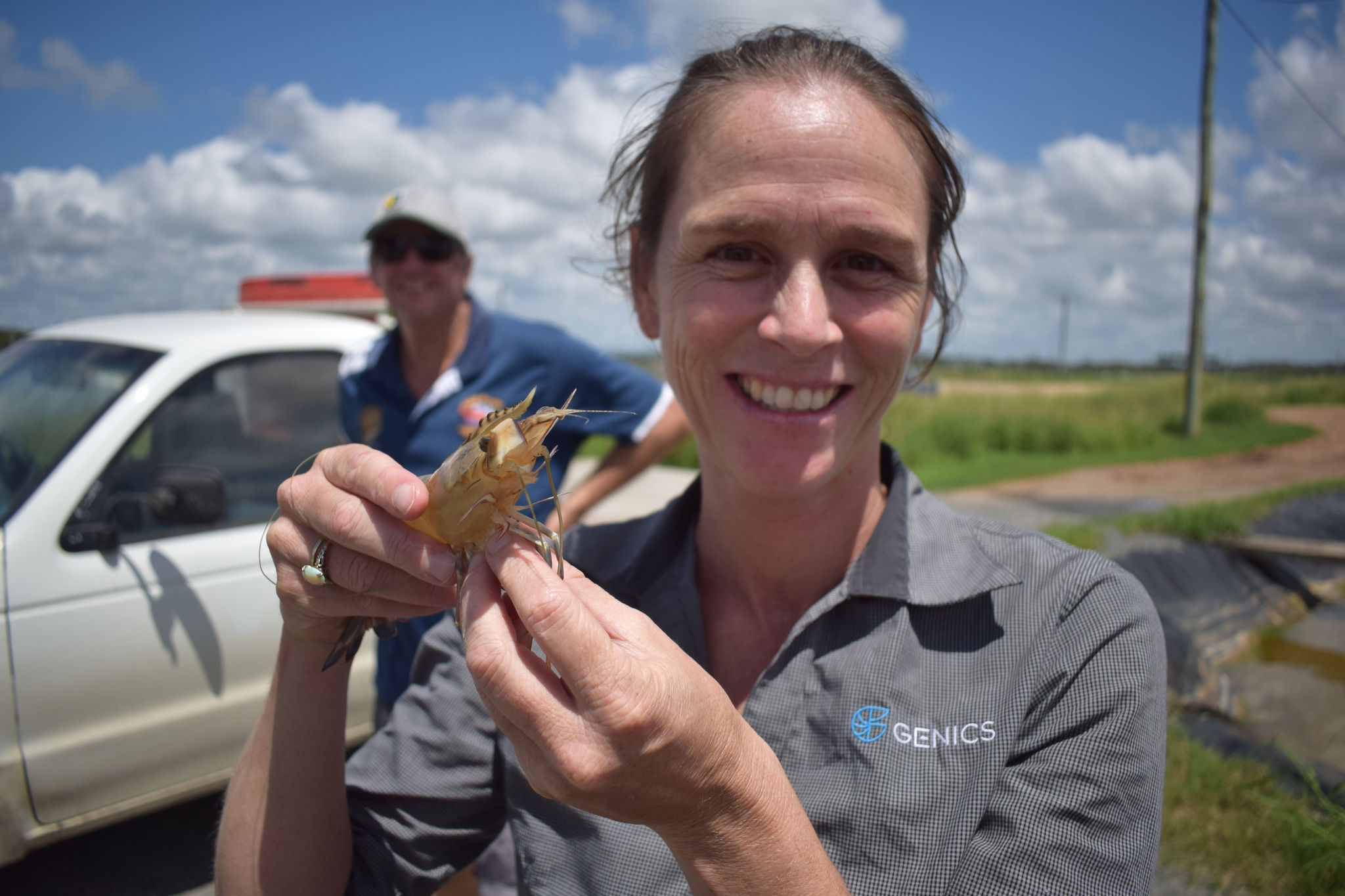The government is now operating in accordance with the Guidance on Caretaker Conventions, pending the outcome of the 2025 federal election.
A shrimp pathogen detection system developed by CSIRO is helping farmers improve the health, yield and sustainability of their operations. Genics, the company spun off from CSIRO to commercialise the technology, is now working with the Australian Government to expand across India and the world.
Genics is a global leader in pathogen detection and biosecurity solutions. The company’s ultra-sensitive Shrimp MultiPath™ 2.0 detects 18 pathogens with a single test, weeks before animals show signs of disease. By helping farmers detect pathogens or disease early in the production cycle, they can make smart management decisions that protect their stock and maximise farm output.
Genics’ solutions are used across the aquaculture and agriculture industries to improve yield, reduce disease risk, and enhance farm profitability. In 2022, the company expanded into the pork industry. It is now looking to transfer its solutions to the banana industry.
‘We have world-leading proprietary technologies, frameworks and knowledge,’ says Dr Melony Sellars, Genics’ CEO and Managing Director, and a member of the CSIRO research team that developed the pathogen detection system. ‘No-one can come close to the substantial production gains we can help farmers achieve, thanks to these tools and skills.’
Eyes on opportunities in India
Genics started exporting in 2019, the same year it was founded. Its first export market was Austria, and today Genics does business in more than 50 countries. Its top 3 markets are Indonesia, Ecuador and other Latin American countries.
Genics was attracted to India because of the scale of its shrimp industry. India is the world’s second largest producer of shrimp after Ecuador. It produces 800,000 metric tonnes of shrimp annually, most of which is exported.
India’s shrimp industry predominantly grows Pacific white shrimp. Broodstock for this species is typically imported from the US and quarantined when it arrives in India. The shrimp is transported to farms for breeding, then the progeny is distributed to smallholder farms across the country. The constant movement through facilities with varying biosecurity controls puts the shrimp at risk of diseases and pathogens like white spot virus and microsporidia.
‘The shrimp’s movement means we can make a huge amount of positive impact at different points in the value chain,’ says Sellars. ‘During the breeding stage, we can make sure the farms are producing healthy babies. Then we can help smaller farms optimise their biosecurity.’
Genics’ knowledge and technology also help improve environmental sustainability by reducing:
- chemical usage through resilience-tolerant breeding lines
- medicinal usage in the human food supply
- mortality during production. This increases protein production from each unit of area under culture, minimising the physical footprint to produce food.

Dr Melony Sellars was a member of the CSIRO research team that developed the prawn pathogen detection system.
Australian Government helps open export doors
Genics started laying the ground to enter India in April 2020 during the pandemic. Austrade and the Department of Agriculture, Fisheries and Forestry (DAFF) helped Genics with market entry.
DAFF facilitated direct communication with the Indian National Biodiversity Authority during the pandemic. This resulted in Genics securing a key permit that enabled the company to ship samples to Australia. DAFF also helped overcome the logistical hurdles imposed by COVID-19, ensuring Genics could secure and maintain market access. Through a Team Australia approach, Genics is navigating the complexities of India’s regulatory environment.
Genics has a track record of helping shrimp producers worldwide to boost farm output. In Ecuador, for example, the company has helped the shrimp industry achieve a 52% increase in baby shrimp production and a 10–15% increase in production in fattening pools.
Sellars believes Genics can do the same for India. ‘We can help Indian shrimp farmers to introduce bio-secure farming conditions so they can produce healthy offspring and adults. We can also advise on ways in which farmers can work collaboratively to get better outcomes for their industry, region and their nation.’
Exploring export opportunities around the world
Genics is working with Austrade to explore export opportunities globally.
‘We work with Austrade teams across the world,’ says Sellars. ‘Austrade’s role in helping us enter the Ecuadorean and Chilean markets recently was phenomenal. We are not only getting introductions to the right companies, but importantly we are getting introduced at the right level in the company.
‘Our government has an amazing network of talented people all around the world. If we’ve got any challenges, we can raise them, and they’ll do what they can to move the barriers to trade.
‘Australia has amazing technology and intellectual property,’ says Sellars. ‘The Australian Government plays a critical role in protecting that technology while enabling the world to access it. If we work together, we can make a meaningful contribution to global food production.’
Go further, faster with Austrade
Austrade’s Go Global Toolkit helps you learn the export basics, find the right markets and understand market requirements.